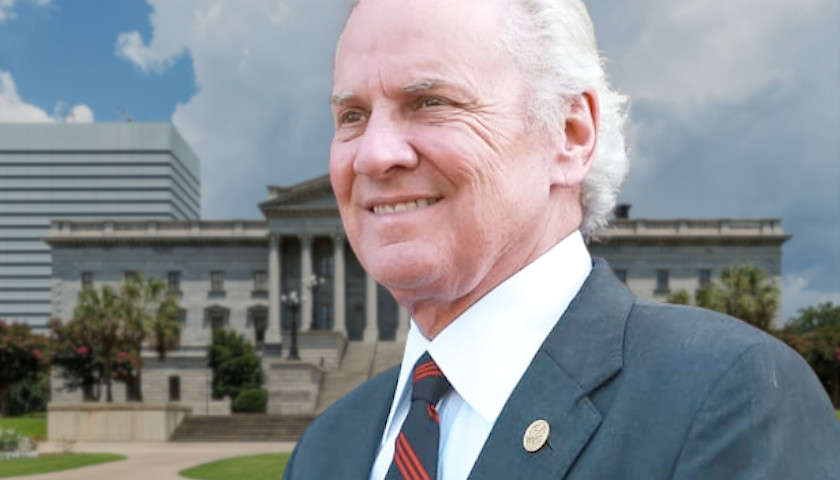The South Carolina Supreme Court ruled Wednesday the state’s pro-life law that prohibits most abortions once a fetal heartbeat is detected is constitutional and may be enforced.
“The Supreme Court’s ruling marks a historic moment in our state’s history and is the culmination of years of hard work and determination by so many in our state to ensure that the sanctity of life is protected,” said Governor Henry McMaster (R) in a statement. “With this victory, we protect the lives of countless unborn children and reaffirm South Carolina’s place as one of the most pro-life states in America.”
The South Carolina Republican Party also celebrated the ruling.
“We have fought tirelessly to protect the lives of our unborn children, and today in South Carolina, we have won,” South Carolina Republican Party Chairman Drew McKissick said. “This decision reaffirms the hard work of the South Carolina Republican Party to ensure the lives of the unborn have someone fighting for them.”
🚨RELEASE🚨 Life wins.
S.C. Supreme Court rules Fetal Heartbeat & Protection from Abortion act CONSTITUTIONAL!
Full Statement ⬇️⬇️⬇️ pic.twitter.com/cqADG3zeso
— South Carolina Republican Party (@SCGOP) August 23, 2023
The Wall Street Journal reported:
The 4-to-1 decision effectively reverses a ruling from earlier this year, in which the court had struck down a so-called fetal heartbeat bill, banning abortion in the earliest weeks of pregnancy on the basis that it violated a privacy guarantee in the state constitution.
Justice John Kittredge, writing for the majority, said it is the role of the state legislature to make such policy decisions and that the representatives of the people decided that a woman’s right to privacy and bodily autonomy “does not outweigh the interest of the unborn child to live” after a particular stage of pregnancy.
“Through the legal and judicial lens under which we must operate, while mindful of the difficult and emotional issue before us, we cannot say as a matter of law that the 2023 Act is unreasonable and thus violates the state constitution,” Kittredge added.
According to the legislation, most abortions are banned in the state once a fetal heartbeat is detected, generally at about six weeks of pregnancy.
The law allows an exception if the pregnancy results from rape or incest, the gestational age of the unborn baby is not more than 12 weeks, and the allegation of rape or incest is reported to the county sheriff no later than 24 hours after the abortion.
Additional exceptions to the law exist if the pregnant woman is experiencing a medical emergency or an abortion is deemed necessary to prevent her death or the serious risk of a “substantial and irreversible impairment of a major bodily function, not including psychological or emotional conditions.”
An abortion may also be permitted in the case of the existence of a fatal fetal anomaly.
As Legal Insurrection observed, leftist media drew readers’ attention to the fact that an all-male South Carolina Supreme Court upheld the state’s Fetal Heartbeat and Protection from Abortion Act.
The Post and Courier followed along with the Associated Press (AP), the New York Times, the German-owned Politico, and other media allies of the abortion industry in reporting the news of the ruling with the headline, “6-Week Abortion Ban Takes Effect with Ruling from SC’s All-Male Supreme Court.”
BREAKING: South Carolina’s new all-male Supreme Court has reversed its own abortion decision, upholding a ban on most procedures after six weeks of pregnancy. https://t.co/k5O9iLNGx3
— The Associated Press (@AP) August 23, 2023
Breaking News: The South Carolina Supreme Court, a newly all-male bench, upheld a near-total ban on abortion, allowing a six-week ban to take effect. The move reverses a decision the court made in January, before the makeup of the bench changed. https://t.co/owxWtoB2DM
— The New York Times (@nytimes) August 23, 2023
South Carolina's new all-male highest court reverses course on abortion, upholding strict 6-week ban https://t.co/Ag7TxuhcKN
— POLITICO (@politico) August 23, 2023
An all-male U.S. Supreme Court, however, created a right to abortion in 1973 in the case of Roe v. Wade, when none ever existed in the U.S. Constitution.
Since the U.S. Supreme Court overturned Roe v. Wade via the Dobbs decision in June of last year, 25 states have now placed pro-life protections for mothers and their children.
Every state south of Virginia and east of New Mexico has passed a new abortion prevention act since Roe fell.#LifeisWinning
— Kristan Hawkins (@KristanHawkins) May 24, 2023
Susan B. Anthony Pro-Life America highlighted in November as well, following the general election, the “governors who signed ambitious pro-life legislation into law and never flinched politically, despite running in competitive states,” and specifically mentioned Governor Ron DeSantis (R-FL) who won his race by 19.4 percent; Governor Mike DeWine (R-OH), who won by 25.6 percent; Governor Brian Kemp (R-GA), who won by 7.5 percent; and Governor Greg Abbott (R-TX), who won by 11.1 percent.
– – –
Susan Berry, PhD is national education editor at The Star News Network. Email tips to [email protected]
Photo “Henry McMaster” by Henry McMaster. Background Photo “South Carolina Capitol” by DXR. CC BY-SA 4.0.





